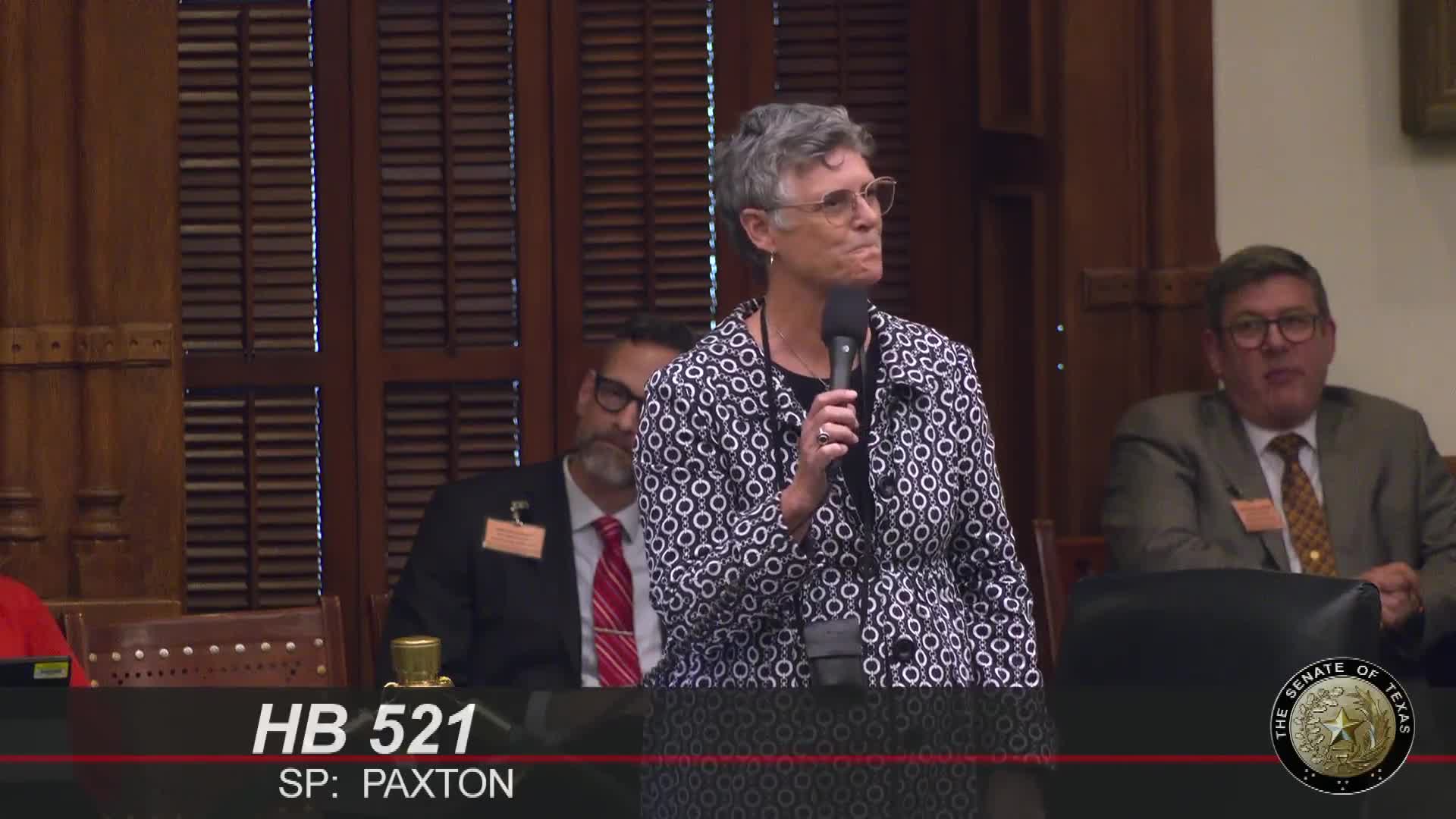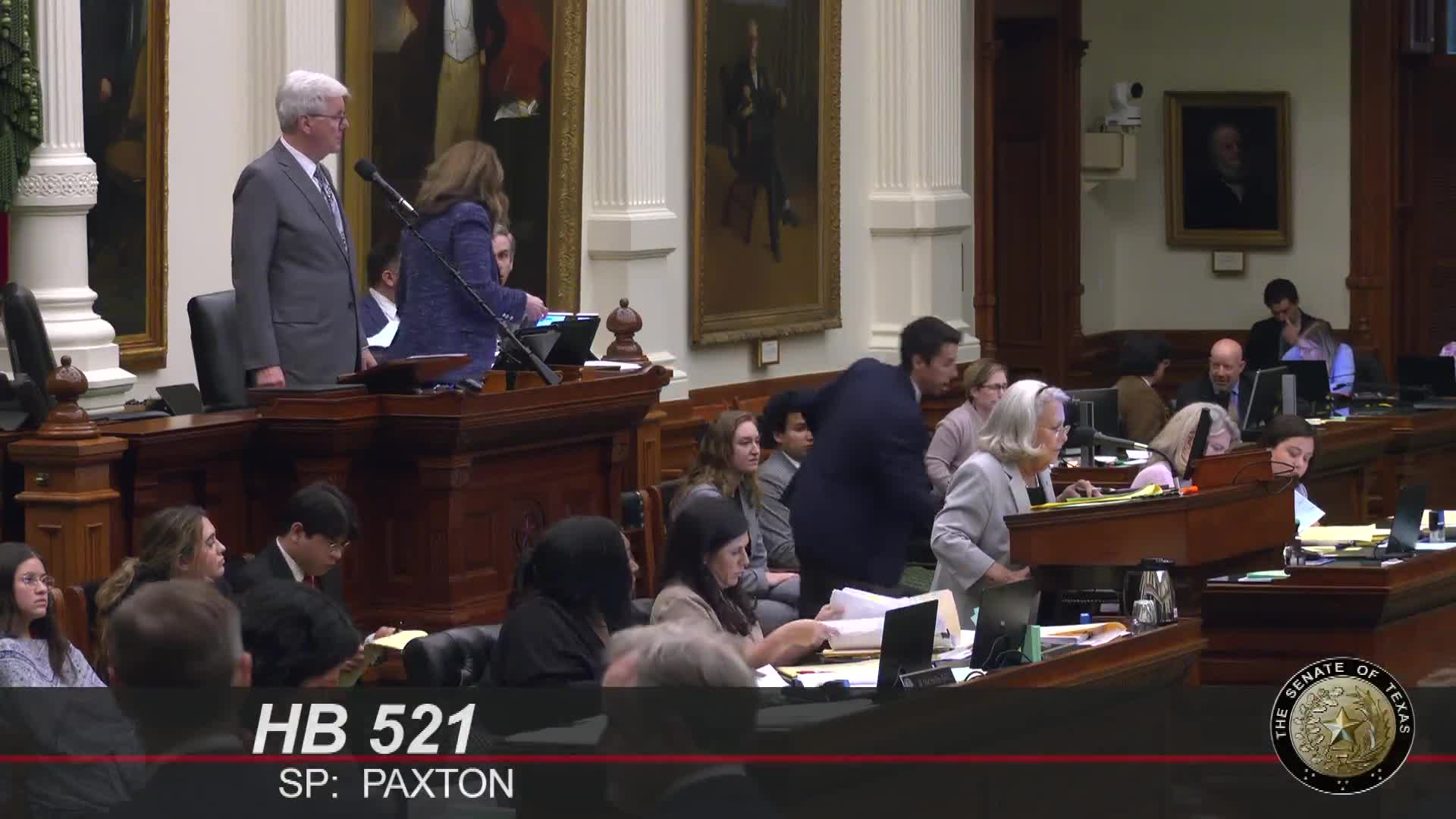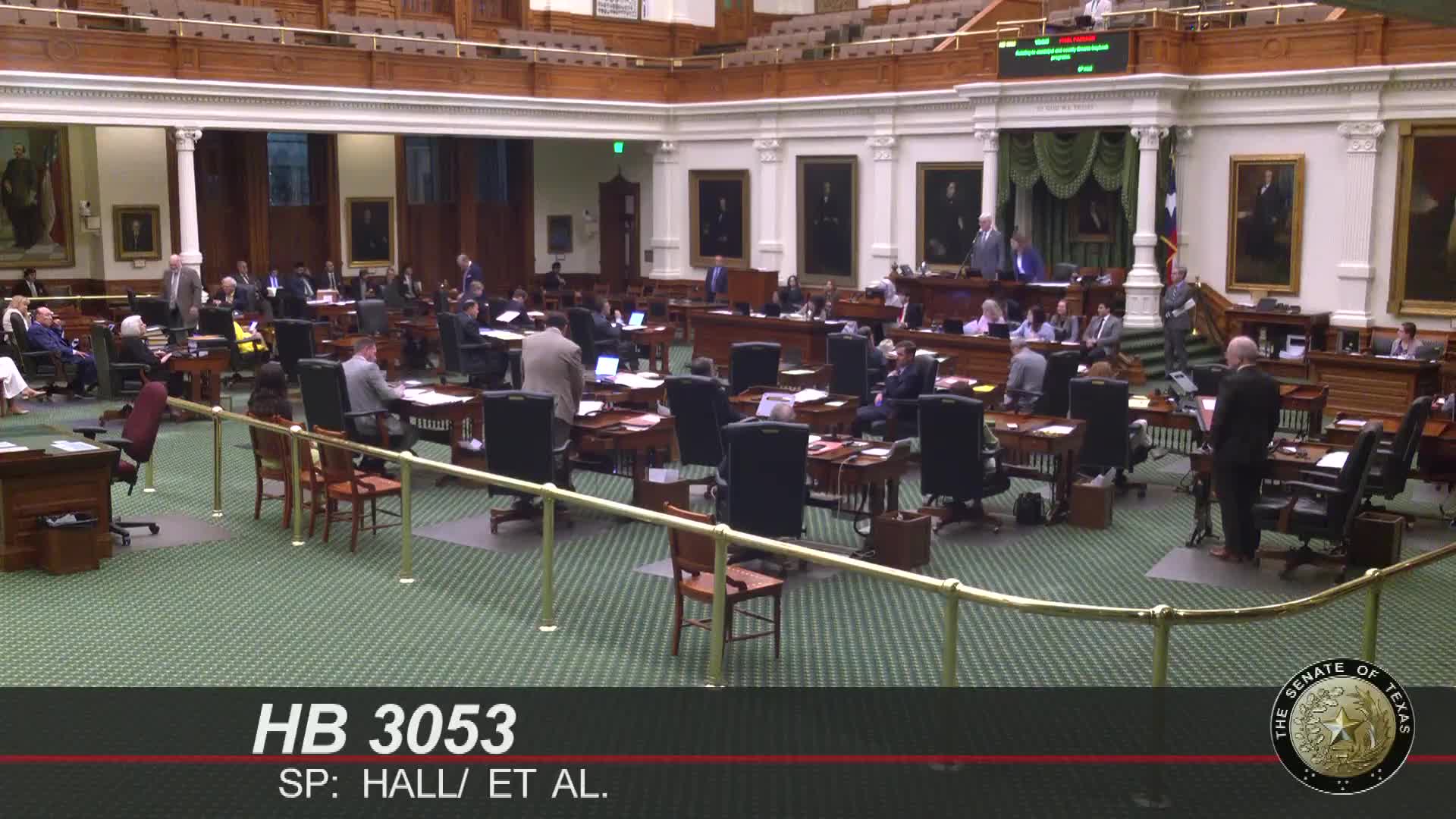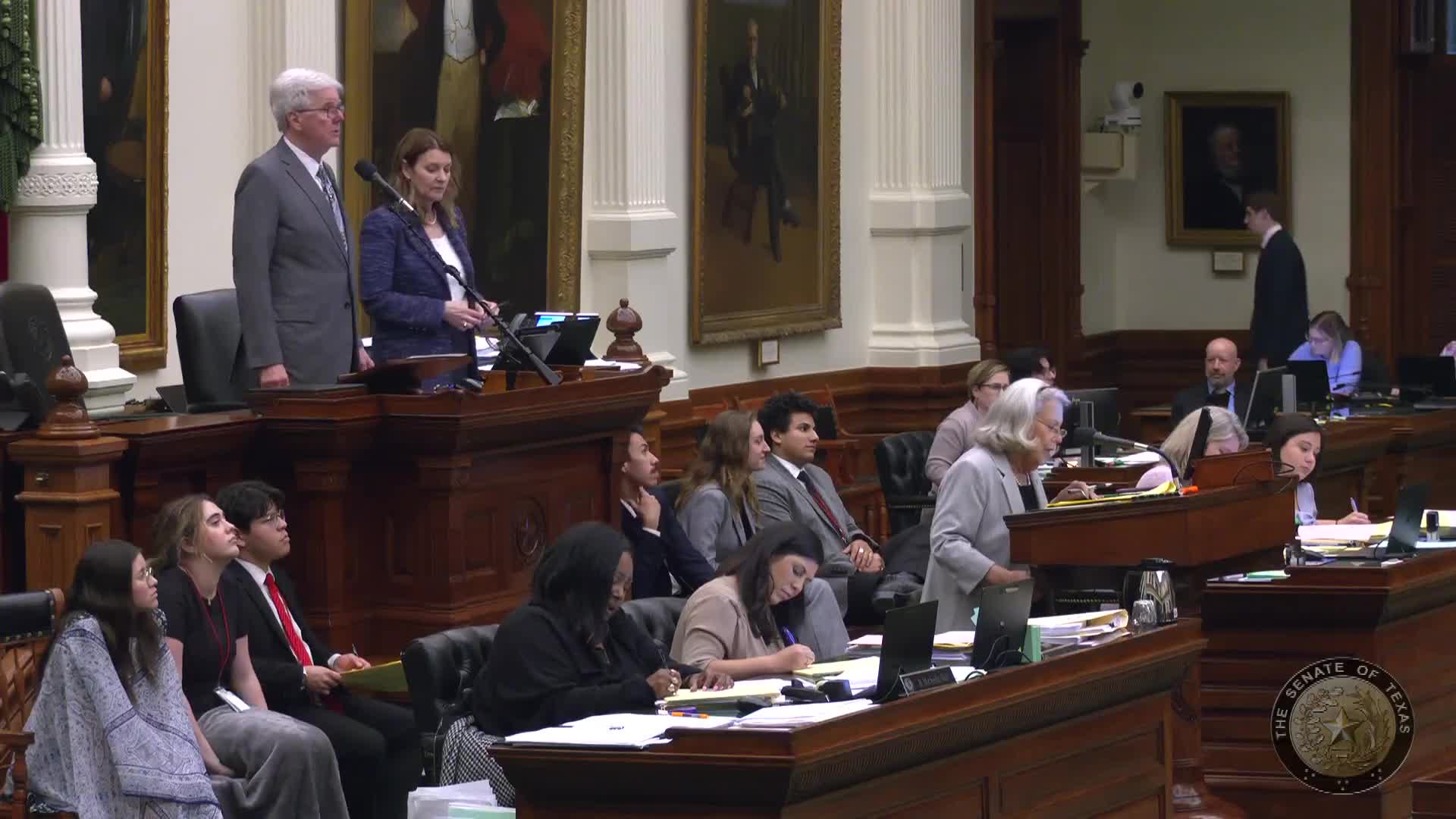Article not found
This article is no longer available. But don't worry—we've gathered other articles that discuss the same topic.

Senate approves House Bill 229 on foreign collection of governmental biological information after brief privacy objection

Senator warns House Bill 521 could create government 'lists' as Senate approves accommodation measure for voters with disabilities

Senate approves House Bill 3053 restricting municipal and county firearm buyback programs after debate on local control

